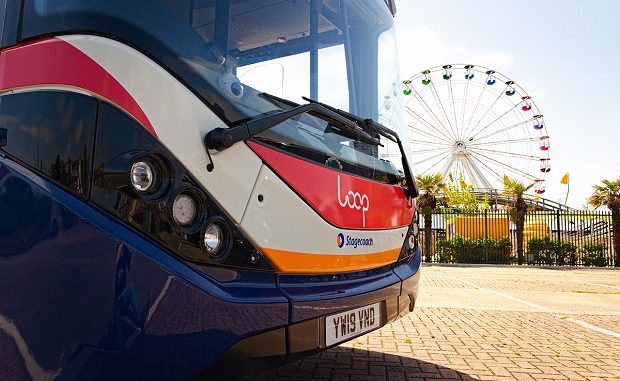
A rival offer for Stagecoach Group is being recommended to shareholders with a buy out plan from National Express now off the table.
Last year National Express was in talks to buy the Stagecoach Group in an all-share arrangement worth £445m.
But today (March 9) it has been announced that a new offer from Inframobility UK Bidco -a company indirectly linked to a fund managed by DWS Infrastructure – is to be recommended instead.
The DWS Infrastructure offer is for 105 pence for each Stagecoach share, resulting in a value of £595m.
Stagecoach has confirmed that it no longer intends to recommend the National Express offer.
An announcement from Stagecoach says: “Stagecoach and DWS share a vision around the benefits of transitioning to a more sustainable world and both have a track record of unlocking value for all stakeholders.
“It will provide continuity in terms of the well-regarded senior management team, with the retention of the current Chief Executive, Finance Director and UK Managing Director.
“For employees, it will provide greater certainty over the future, with overall headcount in frontline operational roles expected to remain the same, as well as the retention of Stagecoach’s existing headquarter functions and related roles in Perth, London and Stockport. Employees will also benefit from the commitments given to the SGPS.
“The Offer will provide access to capital to invest in services and deliver on Stagecoach’s existing strategy to transition to a net-zero future, delivering multiple benefits to the customers and communities it serves.”
Hamish Mackenzie, Head of Infrastructure at DWS said:”Stagecoach is a fantastic business with an exciting future as a central player in a revitalised UK bus and coach market. As a long-term investor in essential services with a strong track record in the UK and European transport sectors, DWS Infrastructure will back Stagecoach to rapidly capitalise on the growth opportunities presented by increased public and private investment in UK bus and coach.
“We are focused on supporting Stagecoach and its management team to deliver their strategy for the benefit of passengers, local communities and employees, as well as helping achieve ambitious plans for reaching Net Zero. We are pleased the Board of Stagecoach has unanimously recommended our offer and we look forward to working with the existing management team to grow the business sustainably for the long-term.”
Martin Griffiths, Chief Executive of Stagecoach said:”Stagecoach is a leading multi-modal public transport operator and the proposed offer presents a major opportunity to maximise the significant growth potential ahead as governments seek to deliver economic recovery, level up communities, provide better health outcomes for citizens, and transition to a net zero future.
“We believe it will open a new and exciting chapter for Stagecoach, backed by a team who share our vision for a more sustainable future. We also believe it will deliver positive outcomes both now and in the long-term for all of our key stakeholders: the customers and the communities we serve, the people who deliver our high-quality transport services, our partners in national and local government, and the investors who have supported our continued success over many decades.”
The Stagecoach bus company was founded in 1980 by Brian Souter and his sister Ann Gloag, who bought Manston airport in 2013 and shut it a year later, selling a majority stake to businessmen Trevor Cartner and Chris Musgrave who formed Stone Hill Park.
DWS Infrastructure investments in the UK include Corelink, Kelda -which owns Yorkshire Water – and Peel Ports.

